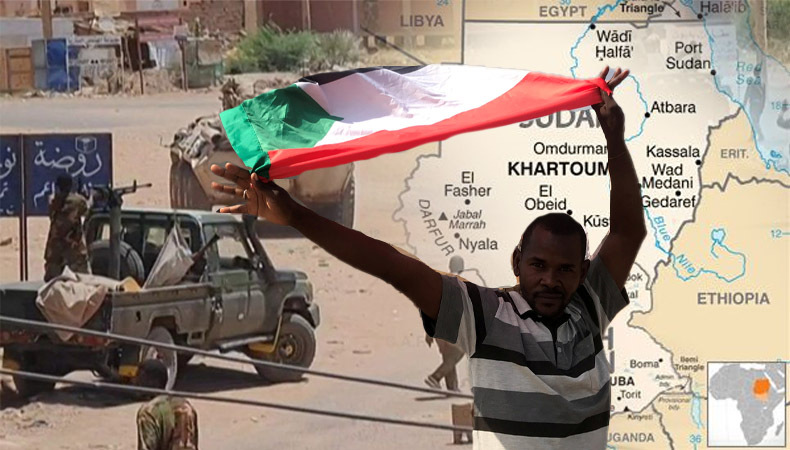Sudan cease-fire agreement gives Khartoum residents hope for respite

Residents in Khartoum, the capital of Sudan, reported hearing airstrikes and fighting between rival factions on Sunday, after a Saudi-US-brokered agreement for a week-long cease-fire sparked hopes of a break in the five-week battle.
Also Read – Things could go south in Sudan violence – the two possible scenarios that might unfold
After meetings in the Saudi city of Jeddah on Saturday, the opposing paramilitary Rapid Support Forces (RSF) and the army agreed to a settlement that will go into force on Monday night with an international monitoring system. Additionally, it enables the distribution of humanitarian aid.
Since the battle began on April 15, cease-fire declarations have been made several times; however, the Jeddah agreement is the first time the parties have agreed to a truce following talks.
Analysts question the ability of RSF commander Mohamed Hamdan Dagalo, also known as Hemedti, and army leader Abdel Fattah Al-Burhan to impose a cease-fire on the ground. Both have previously stated that they want the conflict to end, but neither has gone to Jeddah.
Even while violence persisted on Sunday, the army and RSF reiterated their commitment to the cease-fire in declarations. On Sunday morning, witnesses reported occasional fighting in central and southern Khartoum. Later that day, eastern Khartoum and Omdurman, one of the three towns that make up the larger capital, experienced airstrikes and anti-aircraft fire.
A humanitarian catastrophe that threatens to destabilize the area has been caused by the 1.1 million individuals who have abandoned their homes since the war began, either fleeing inside Sudan or to neighboring nations.
In the midst of widespread thievery, a breakdown in health facilities, and diminishing supplies of food, gasoline, power, and water, those who are left in Khartoum are battling for survival.
A resident of Khartoum named Safaa Ibrahim, 35, told Reuters over the phone that she hoped the agreement would put a stop to the hostilities.
“We’re fed up with this conflict. The family has dispersed across locations in Sudan and Egypt after being driven from our homes, she claimed.
Also Read – Sudan crisis: Residence of the head of Kuwait’s military office in Khartoum attacked
The Jeddah agreement states that the cease-fire would be monitored by a commission made up of three representatives from each of the warring parties, three from Saudi Arabia, and three from the US.




